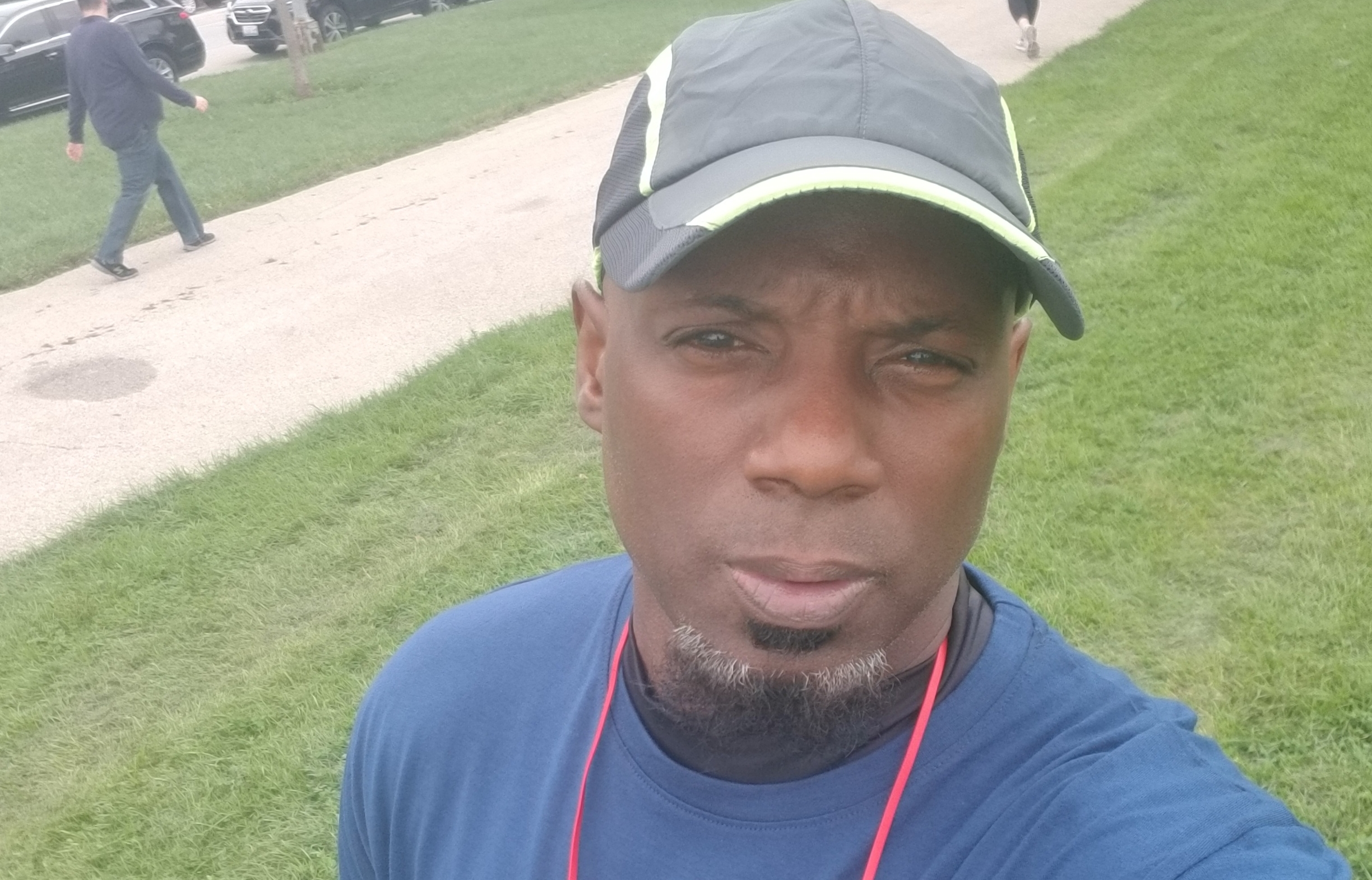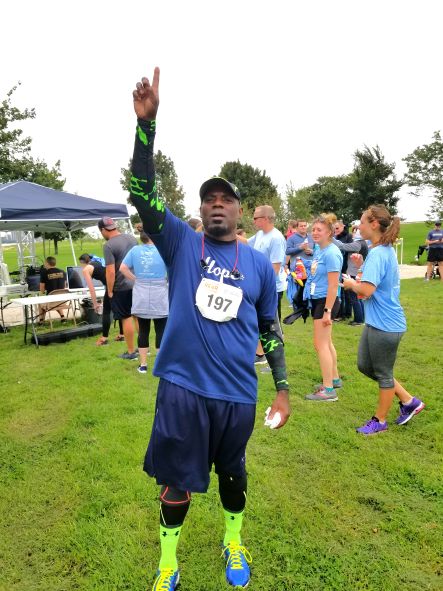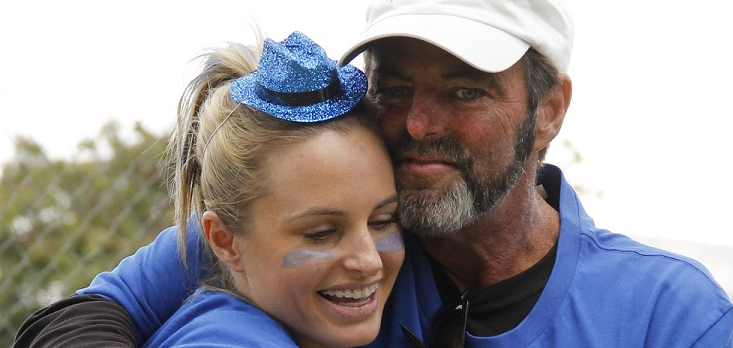
Aaron Watts has lived in Chicago nearly all his life. He has worked as a law enforcement officer in several agencies, and spent most of his life as a regular at the gym. He played sports and was overall very healthy through his 20s and 30s.
Being health conscious, Aaron visits to the doctor yearly for an check up. Normally, they run the usual blood tests, do a physical exam, prescribe him medication for his allergies, and call it done. When he turned 40 in 2009, however, Aaron’s doctor decided to order a colonoscopy.
Aaron and his doctor were friends – Aaron had season tickets to the White Sox and his doctor had season tickets to the Bulls. They would take each other to games, and Aaron trusted him. But initially when the doctor ordered a colonoscopy, Aaron was resistant and skeptical. He had never heard of the procedure and did not have a family history of colon cancer. His doctor and nurse worked to convince him that early screening was a good idea, especially for Black men, and Aaron eventually agreed.
 What happened next came as a tremendous shock to Aaron, his family, and the doctor.
What happened next came as a tremendous shock to Aaron, his family, and the doctor.
Although he had no symptoms and his blood tests were normal, the colonoscopy revealed that Aaron had aggressive stage III colon cancer and needed to undergo immediate surgery. In disbelief, Aaron scheduled appointments for second and third opinions. All of the doctors confirmed the diagnosis.
Aaron underwent surgery to remove 12 inches of his colon and then spent a week in the hospital recovering. Previously, he had been working out regularly and body building in the gym. It took a year of therapy and recovery after the surgery for Aaron to feel normal again.
Treatment was successful and Aaron has not seen his cancer return. Now, he gets a colonoscopy every one to three years and continues to get yearly check ups because he is at a greater risk for developing other cancers.
Since his diagnosis 13 years ago, Aaron has advocated tirelessly to increase awareness of stories like his own. He worries that people especially in the Black community and other communities of color do not have resources and early screening measures because of health inequities. Often, he says, their cancers go undetected until it is too late. Luckily, in Aaron’s case, his doctor was also a Black man who understood the importance of early screening measures in the Black community.
What is remarkable about Aaron’s story is that he had no symptoms and there was no family history of colon cancer. His doctor’s advocacy for early screening saved Aaron’s life.
Following his diagnosis, Aaron sought out resources from well-known cancer advocacy organizations. He was offered food, transportation assistance to appointments, and other help. Aaron wants other Black people to know that resources exist in and outside of their communities, resources that can provide much needed support before and after a cancer diagnosis.
In addition to early screening and raising awareness, Aaron encourages other people in higher risk groups to live a healthy lifestyle to reduce their risk. Aaron himself doesn’t smoke, drink heavily, or eat pork or red meat.
These days, Aaron is back to working, spending time at the gym, and enjoying time with his family. And he remains grateful to his doctor for encouraging him to be screened for colorectal cancer.

